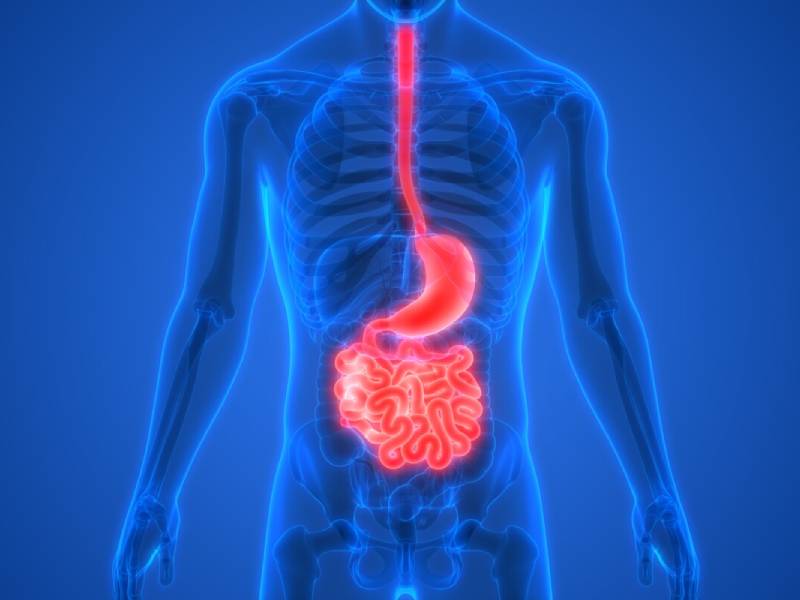Seeking expert care for gastroesophageal cancer in Pune? Dr. Manoj Dongare is a recognised gastroenterologist and GI cancer surgeon, offering advanced treatment options to your needs. With vast experience and a loyalty to patient well-being, Dr. Dongare is your trusted partner in the fight against this serious disease.
Dr. Manoj Dongare is one of the best Cancer treatment in Pune which handles each and every case with utmost care. In his surgical experience, he performs many gastroesophageal Cancer surgeries successfully. His expertise in gastroesophageal Cancer surgery and surgical oncology makes him one of the Liver Cancer Surgeon in Pune.

What is Gastroesophageal Cancer?
Gastric (or stomach) cancer and cancer of the esophagus are both in the digestive system. For the past several decades, the rates of cancer in the main part of the stomach (in the mucus-producing cells that line the stomach) have been falling worldwide. During the same period, cancer in the area where the top part of the stomach (cardia) meets the lower end of the swallowing tube (esophagus) has become much more common. This area of the stomach is called the gastroesophageal junction. Gastroesophageal cancer primarily includes two main types:
- Esophageal Cancer: This type occurs in the esophagus, the tube that carries food from the throat to the stomach. It can be further divided into:
- Adenocarcinoma: Often associated with gastroesophageal reflux disease (GERD) and Barrett’s esophagus.
- Squamous Cell Carcinoma: Commonly linked to smoking, alcohol consumption, and certain dietary factors.
- Gastric (Stomach) Cancer: This cancer develops in the stomach lining and can be classified into:
- Adenocarcinoma: The most common type, accounting for about 90-95% of gastric cancers.
- Gastrointestinal Stromal Tumors (GISTs): Rare tumors that arise from the connective tissues in the stomach.
Early detection and treatment are crucial for improving outcomes in both types of gastroesophageal cancer.
Symptoms of Gastroesophageal cancer:
Signs and symptoms of gastroesophageal cancer and stomach cancer (adenocarcinoma) may include:
- Fatigue
- Feeling bloated after eating
- Feeling full after eating small amounts of food
- Severe, persistent heartburn
- Severe indigestion that is always present
- Unexplained, persistent nausea
- Stomach pain
- Persistent vomiting
- Unintentional weight loss.
- Feeling bloated after eating
- Feeling full after eating small amounts of food
- Severe, persistent heartburn
- Severe indigestion that is always present
- Unexplained, persistent nausea
- Stomach pain
- Persistent vomiting
- Unintentional weight loss
What is the Risk factors of Gastroesophageal cancer:
Factors that cause irritation in the cells of your esophagus and increase your risk of gastroesophageal cancer include:
- Having gastroesophageal reflux disease (GERD)
- Smoking
- Being obese
- Drinking alcohol
- Having bile reflux
- Having difficulty swallowing because of an esophageal sphincter that won’t relax (achalasia)
- Not eating enough fruits and vegetables
How is Gastroesophageal Cancer Diagnosed?
To diagnose esophageal cancer, your doctor will review your symptoms, medical history, and examine you. In addition, some below can test can suggest
- Endoscopy: the doctor passes an endoscope, a thin, lighted tube, down your throat into your esophagus to examine it. Endoscopic ultrasound uses sound waves to provide more information about the extent of tumor involvement in nearby tissues.
- Biopsy: During an endoscopy, the doctor can take cells or tissue from your esophagus. The cells are examined under a microscope for the presence of cancer.
- Tomography (CT) scans:
- Positron emission tomography (PET) scan:
- Thoracoscopy, and Laparoscopy:
What is the treatment option for Gastroesopheal cancer?
Treatment of Gastroesophageal cancer depends on many factors, including the stage of cancer and the overall health of the patient.
- Surgery: Part or all of the esophagus may be removed.
- Radiation therapy: Kills cancer cells with radiation.
- Chemotherapy: Powerful drugs that attack cancer cells throughout the body. sometimes if the tumor is large then chemo is given before surgery.
- Targeted therapy: Newer treatments that target specific aspects of cancer to curb cancer growth and spread.
- Immunotherapy: Helps the immune system to attack cancer cells.
- Photodynamic therapy: Targets cancer cells with special laser light.
What is the cost of gastroesophageal cancer Treatment in Pune?
Why Choose Dr. Manoj Dongare for gastroesophageal cancer Treatment in Pune?
Book an Appointment:
Dr. Manoj Dongare at Dr. D. Y. Patil Hospital and Research Center provides the best treatment for various gastrointestinal diseases in Pimpri Chinchwad Pune. For more information about our comprehensive treatment options, or to request an appointment with the best Surgical Oncologist in Pune call 09881379573 or Click on Book Appointment for online booking with your near hospital.
FAQ's:
Is surgery always necessary?
Surgery is often recommended for localized tumors but depends on the cancer stage and overall health of the patient.
What follow-up care is needed?
Regular follow-ups are essential to monitor recovery, manage side effects, and detect any recurrence early.
Can gastroesophageal cancer be cured?
Early-stage gastroesophageal cancer can often be treated effectively, while advanced stages may require ongoing management.
